After Pressure Campaign from Animal Rights Groups, HSUS Commits $20 million to its Chimpanzee Sanctuary
The News
After a 1.5 year, multi-prong pressure campaign demanding better animal care and living conditions conditions at Project Chimps, The Humane Society of the United States (HSUS) has announced a $20 million commitment to its Georgia sanctuary. According to its press release, HSUS is allocating $5 million in 2022 toward the creation of habitat space for the chimpanzees and $15 million in operational support to be distributed evenly over the course of 10 years. The campaign, called #ChimpsDeserveBetter, was led by the grassroots animal advocacy groups Chimps Deserve Better, Progress for Science and TheirTurn.
“We are pleased that HSUS has pledged critical funding to create a new habitat for the 81 chimpanzees who reside at Project Chimps,” said Donny Moss, a NYC-based Chimps Deserve Better campaign organizer. “After living in laboratories and being subjected to cruel research experiments, these chimpanzees deserve to spend their final years in as natural a setting as captivity can provide.”
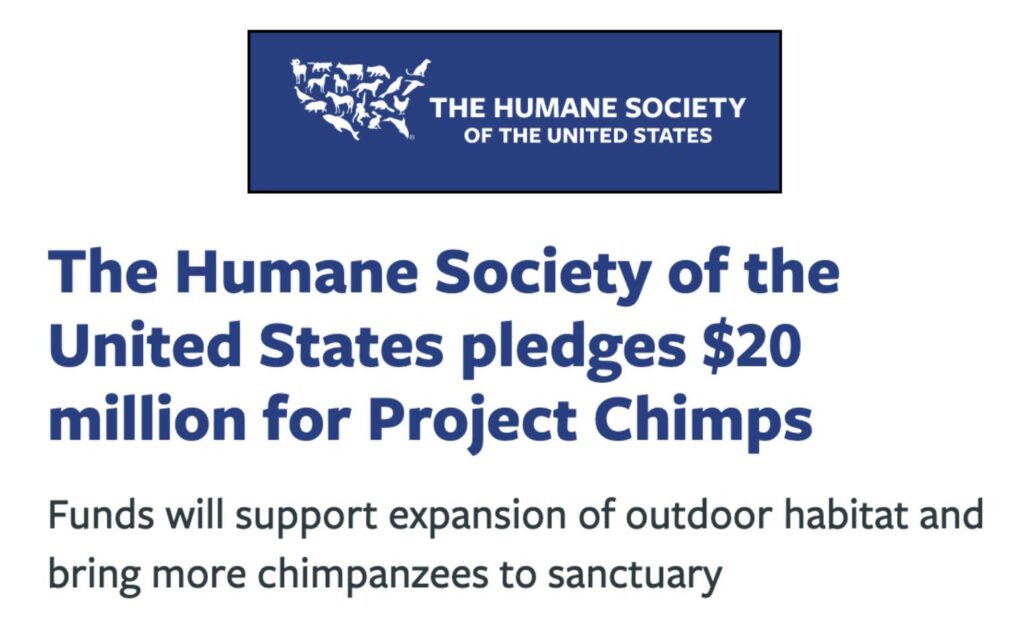
After a 1.5 year, multi-prong pressure campaign demanding better animal care and living conditions conditions at Project Chimps, The Humane Society of the United States (HSUS) has announced a $20 million commitment to its Georgia sanctuary.
The animal rights community learned about the plight of the chimpanzees in May 2020 after Project Chimps sued two former employees who launched a website exposing poor animal care and living conditions at the sanctuary. Following online actions and protests at the homes of HSUS board members, Project Chimps dropped the lawsuit against the whistleblowers, Crystal Alba and Lindsay Vanderhoogt.
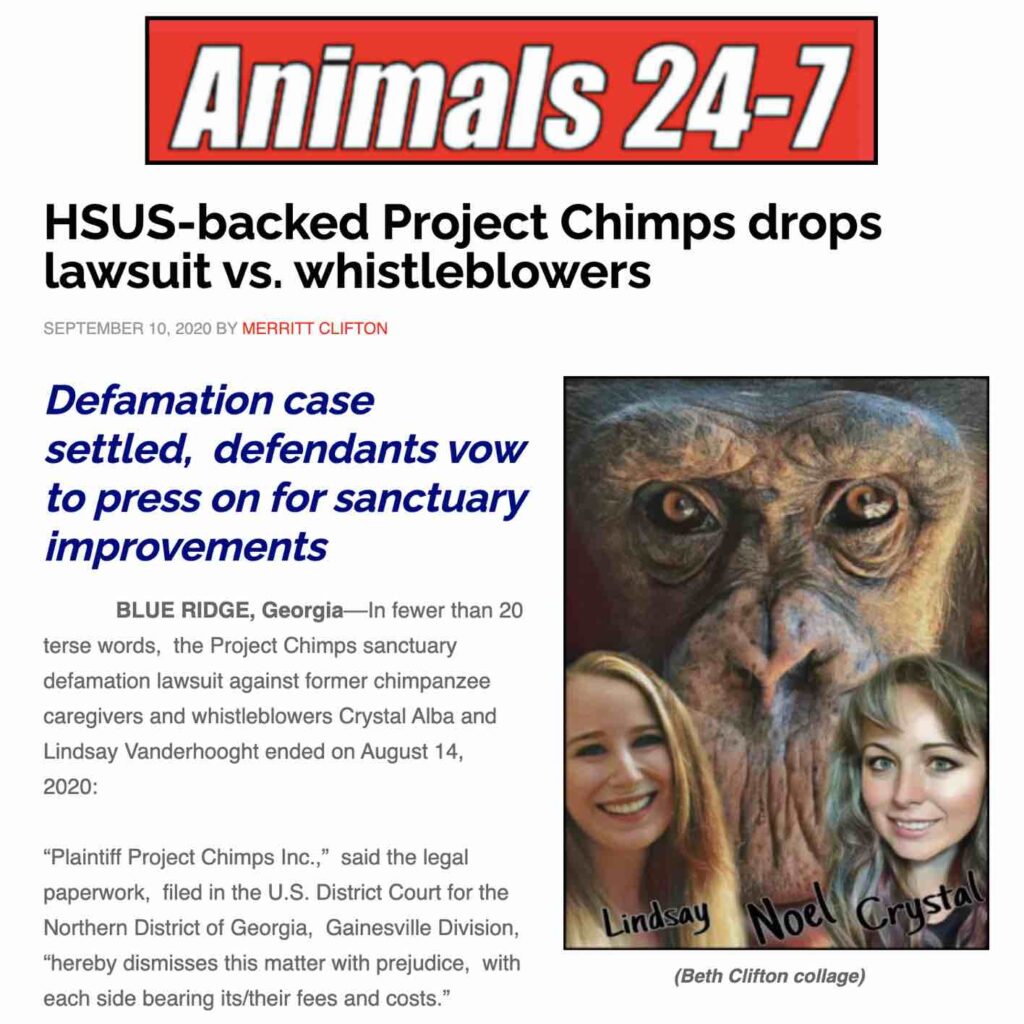
Following protests by grassroots animal rights groups, HSUS dropped its lawsuit against Project Chimps’s whistleblowers Crystal Alba and Lindsay Vanderhoogt
Starting in July 2020, the animal rights groups launched a broader campaign calling on HSUS to hire a veterinarian with chimpanzee experience and create enough habitat space at Project Chimps to enable the chimpanzees to have daily access to the outdoors.
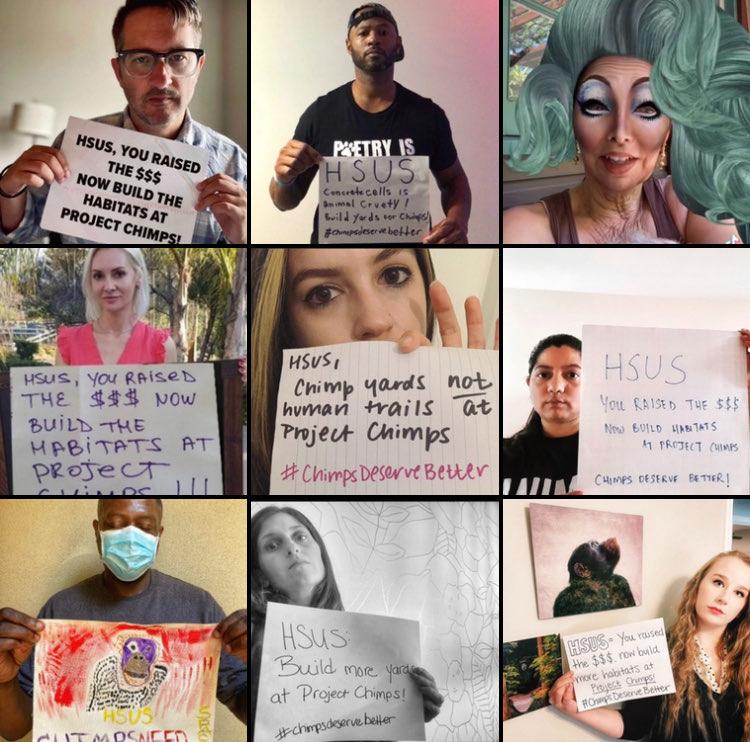
Animal rights activists around the country called on The Humane Society of the United States (HSUS) to create additional yards at Project Chimps so that the 81 chimpanzees in their care have daily access to the outdoors.
“With a new veterinarian in place and funding to break ground on a new habitat, we are pausing the protests against HSUS,” said Bob Ingersoll, a San Francisco-based primatologist and organizer on the Chimps Deserve Better campaign. “We hope to replace the protests with an open dialogue about the changes being made to improve the lives of the chimpanzees.”
“The infusion of funds will help improve the facilities, if spent wisely,” said Lindsay Vanderhoogt, a whistleblower with Chimps Deserve Better. “But we’d also like to see a change in culture where management prioritizes the welfare of the chimpanzees in the decision-making process.”
“Five million dollars is a significant step towards providing the chimps with adequate housing and daily outdoor access,” said Cory Mac, a Chimps Deserve Better campaign organizer with Progress for Science, an anti-vivisection animal rights activist group in Los Angeles. “We look forward to hearing more about how HSUS and Project Chimps will be moving forward to guarantee these necessities along with instituting improved health care and practices for the chimps.“
Filed under: Experimentation
Tagged with: chimpanzees, Humane Society of the United States, Project Chimps



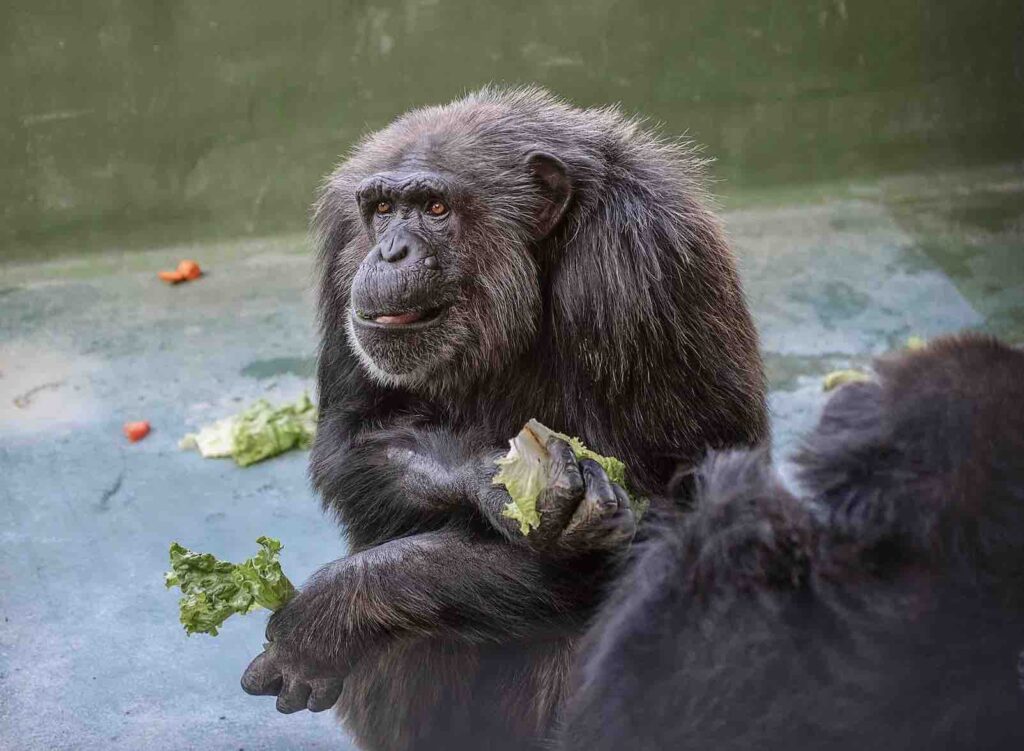
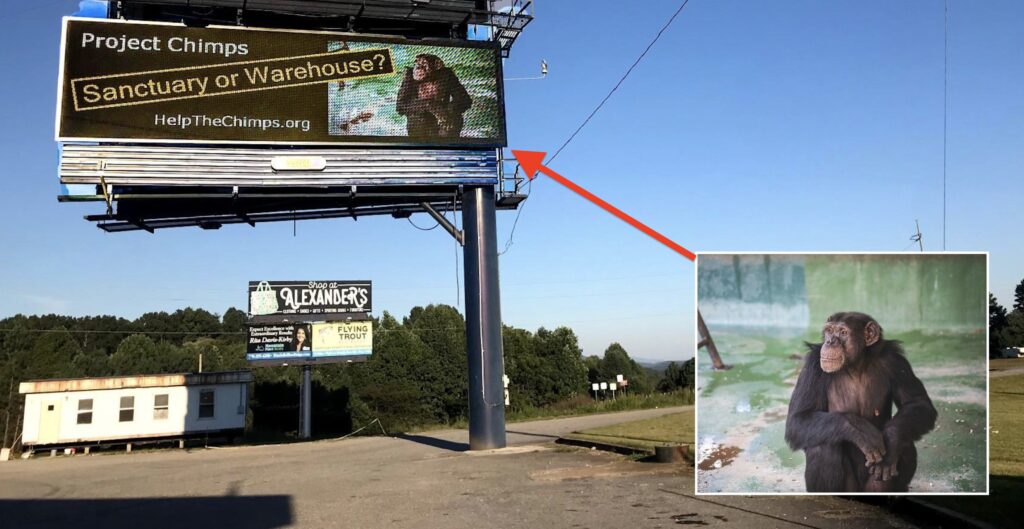
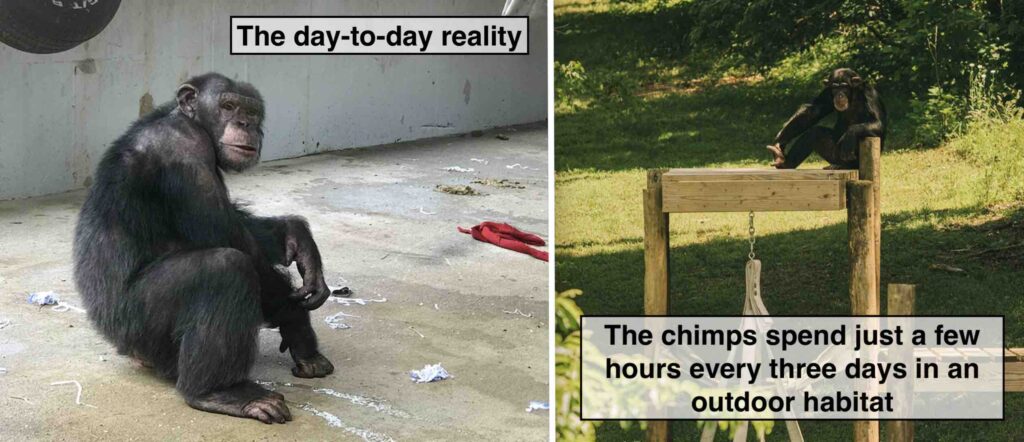

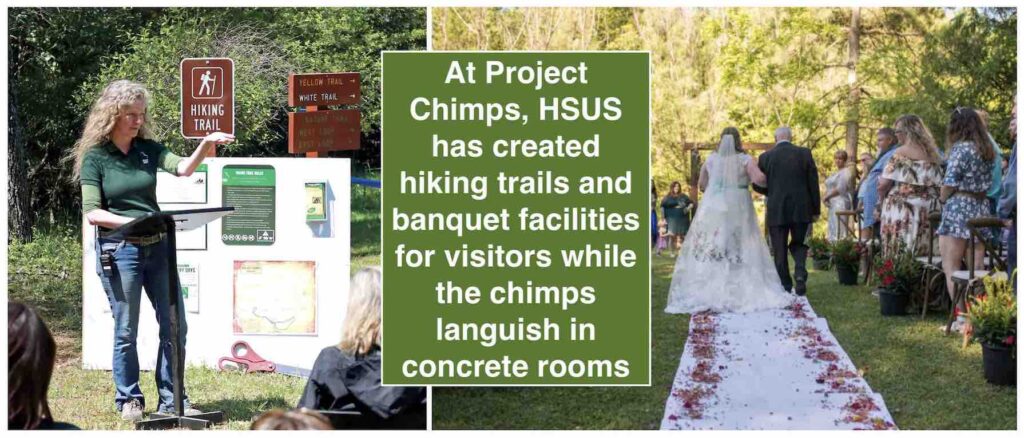
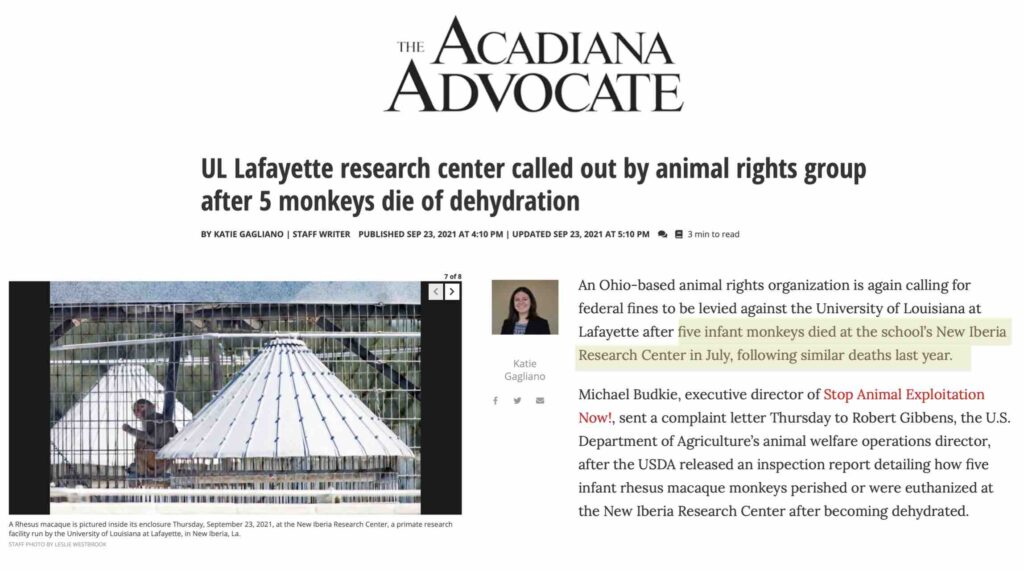
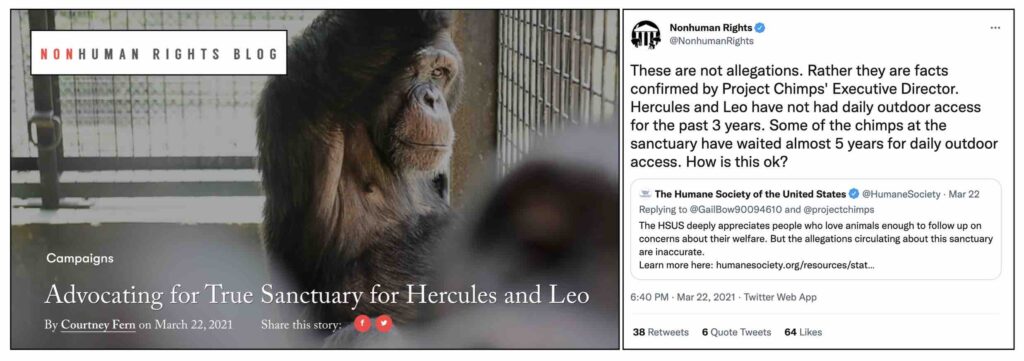
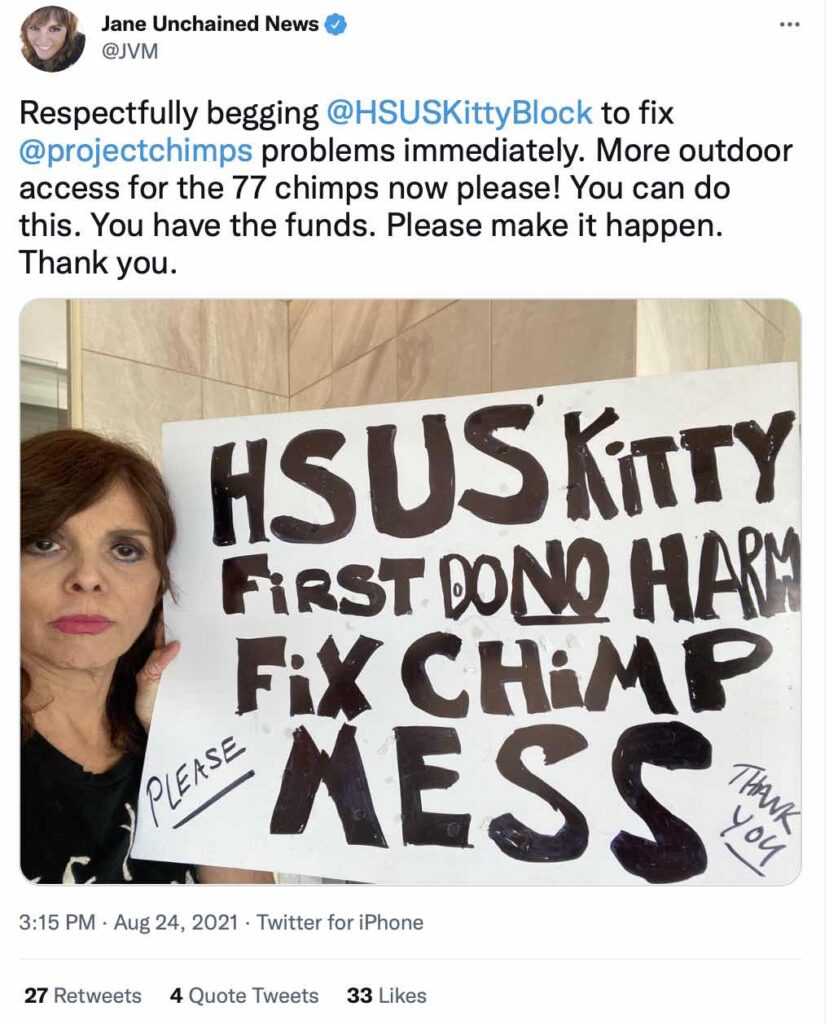
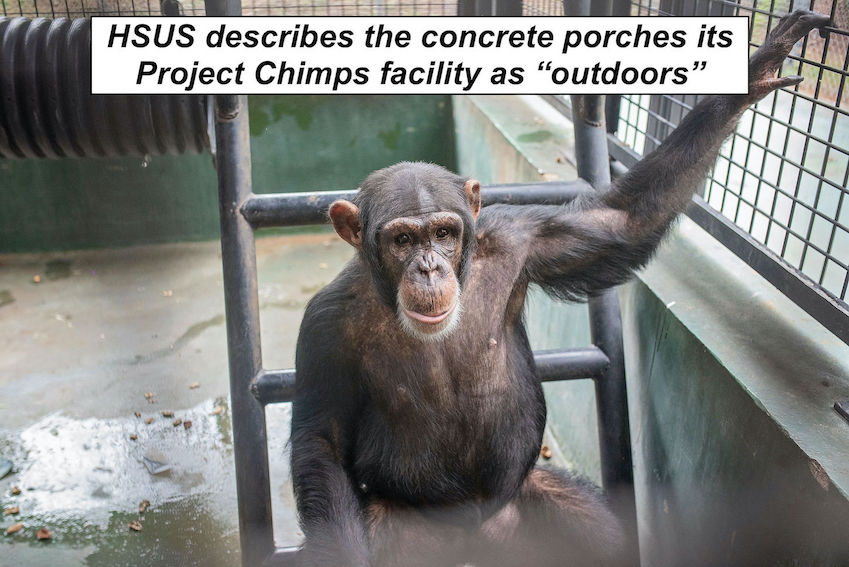

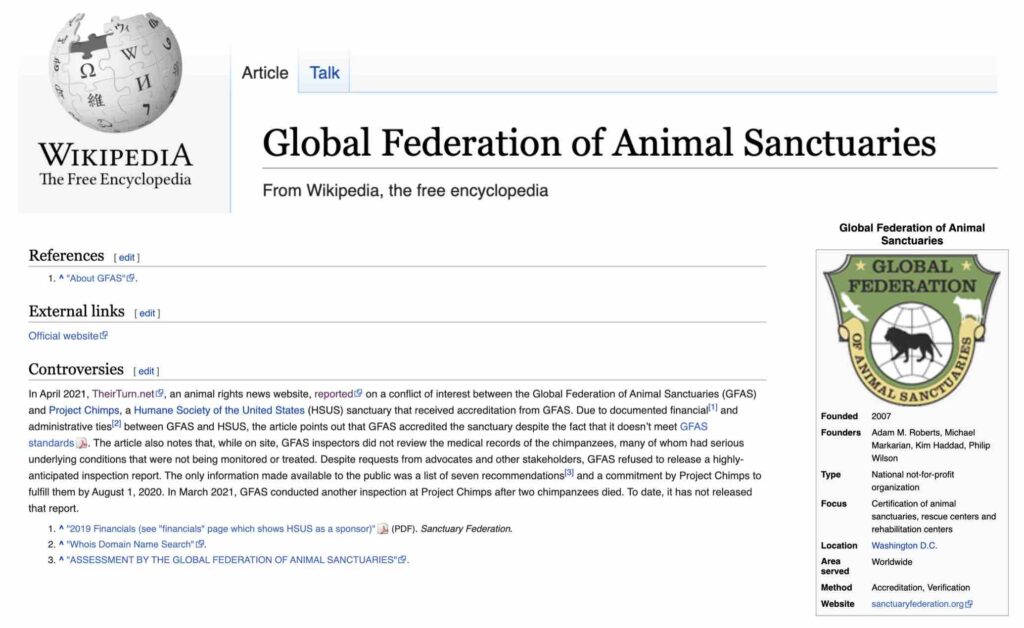
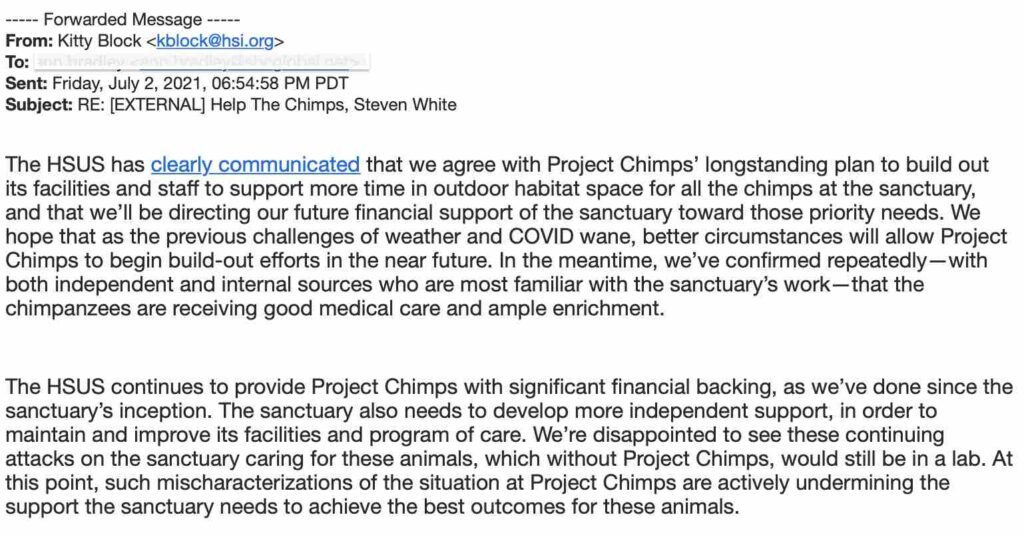
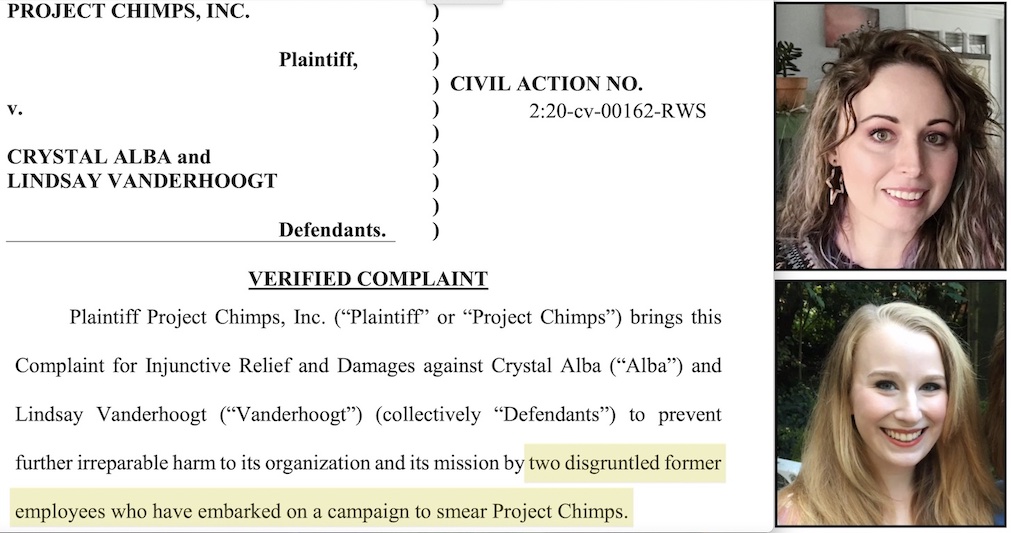
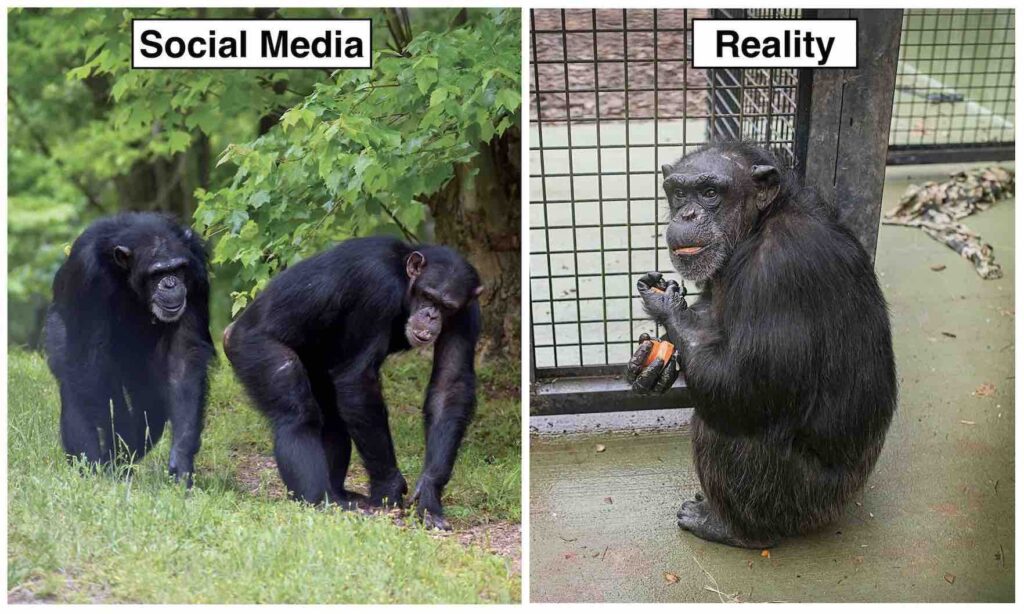
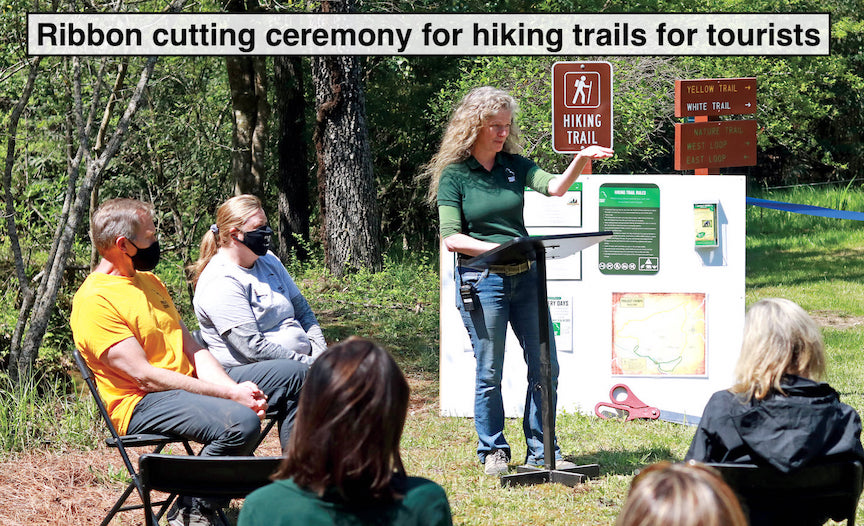
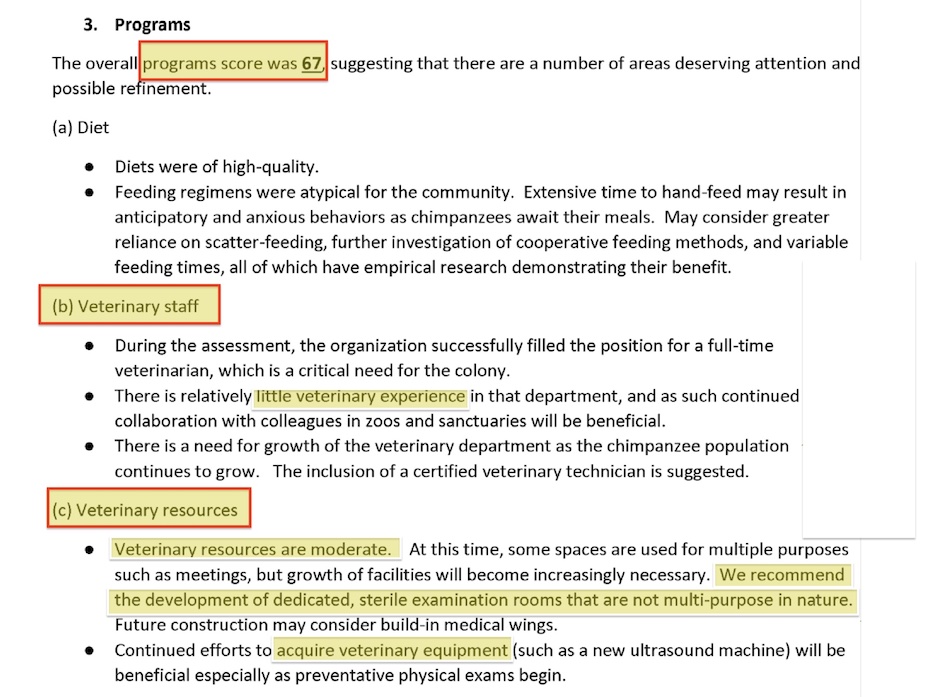
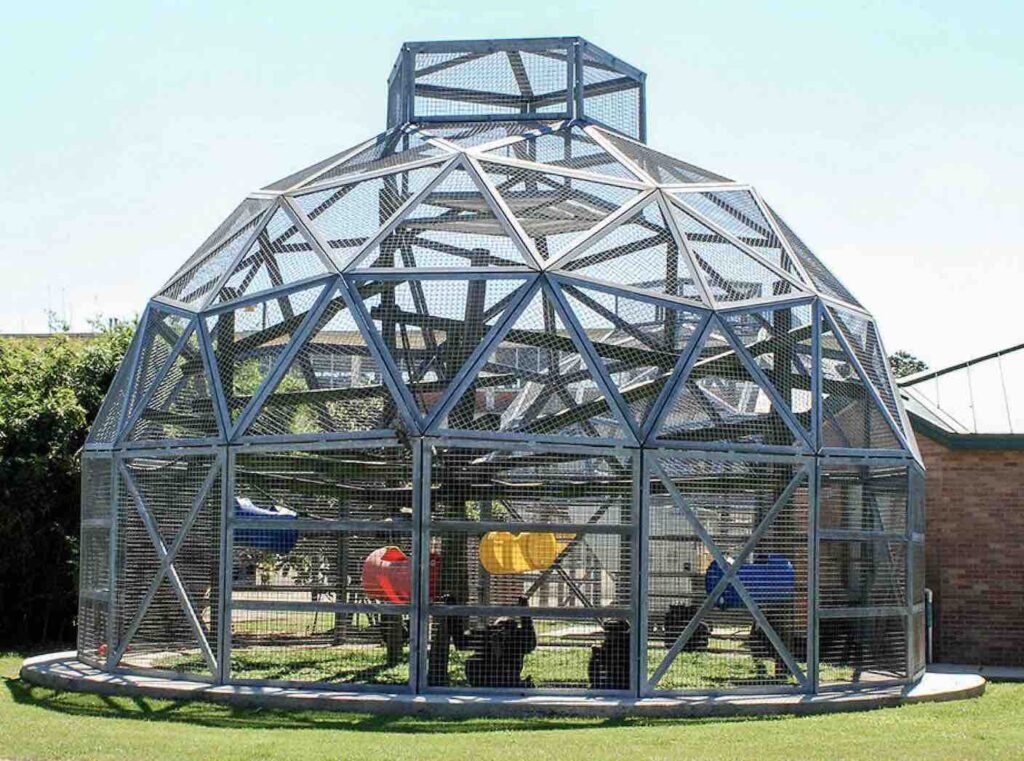
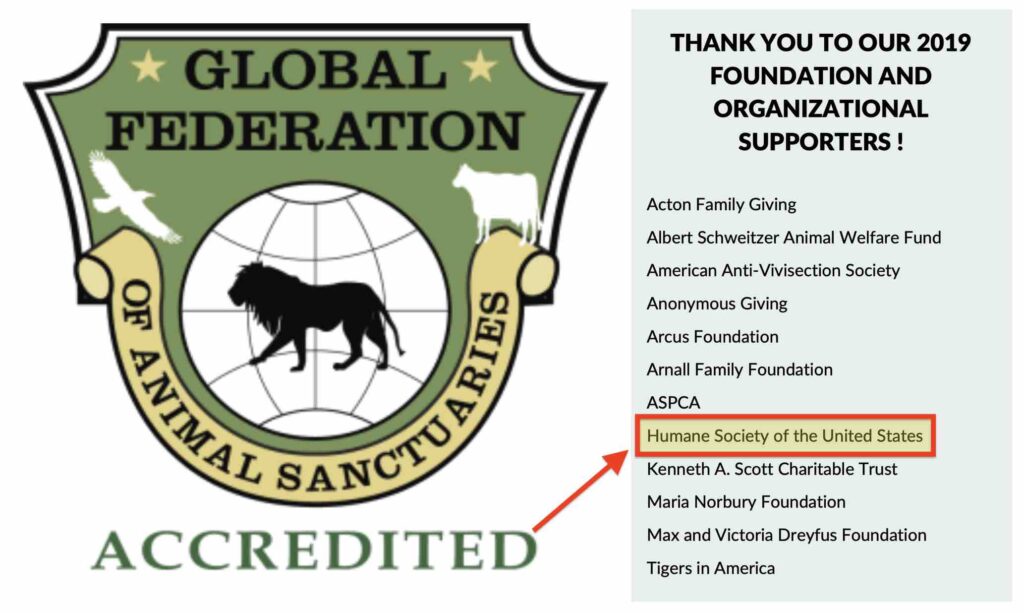
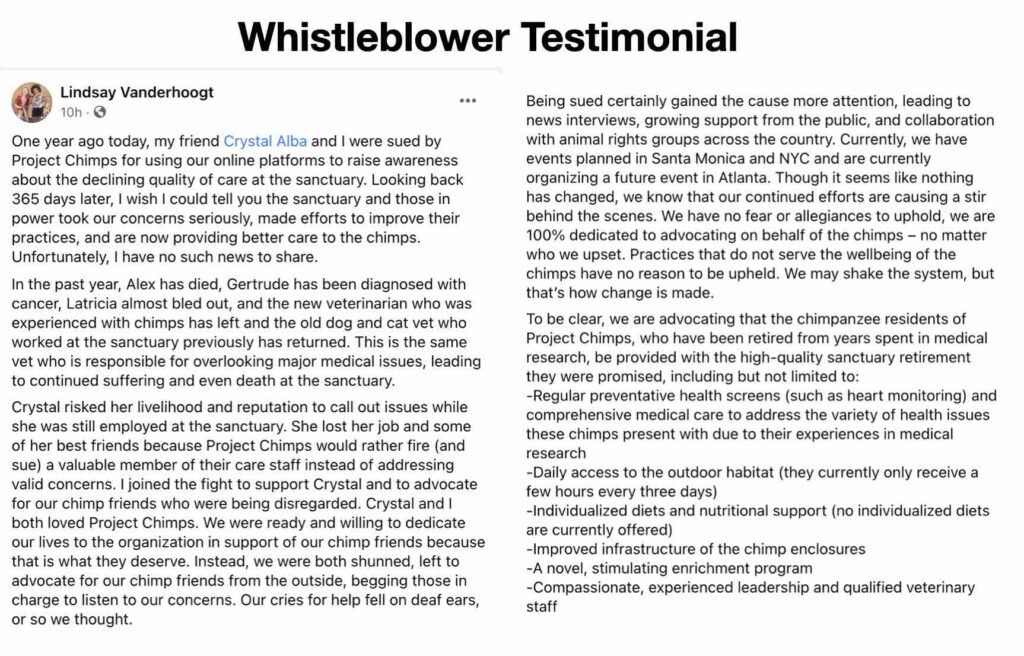
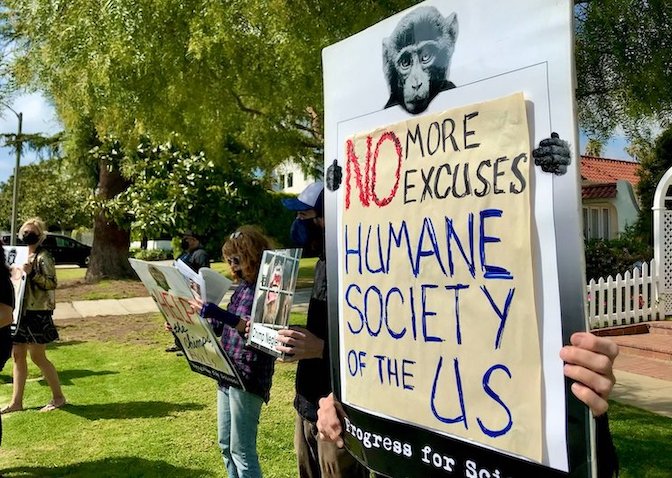
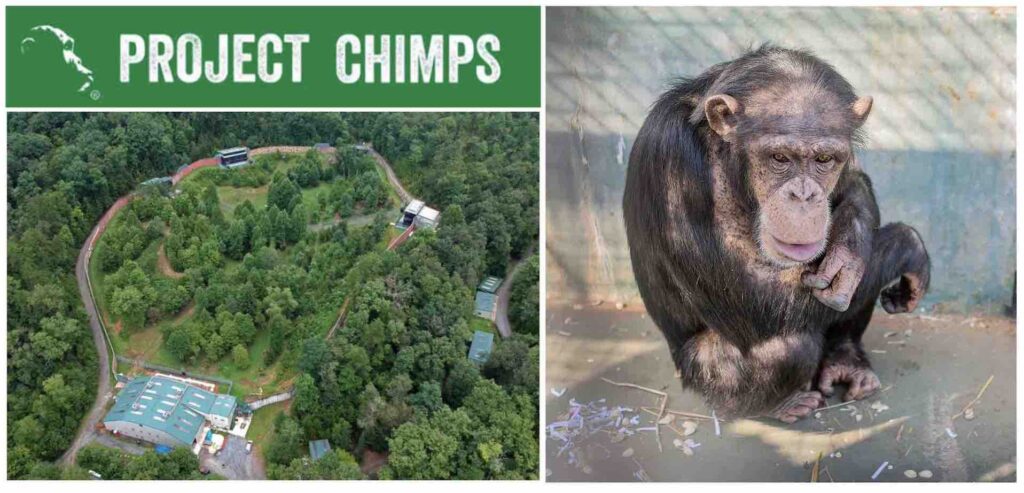
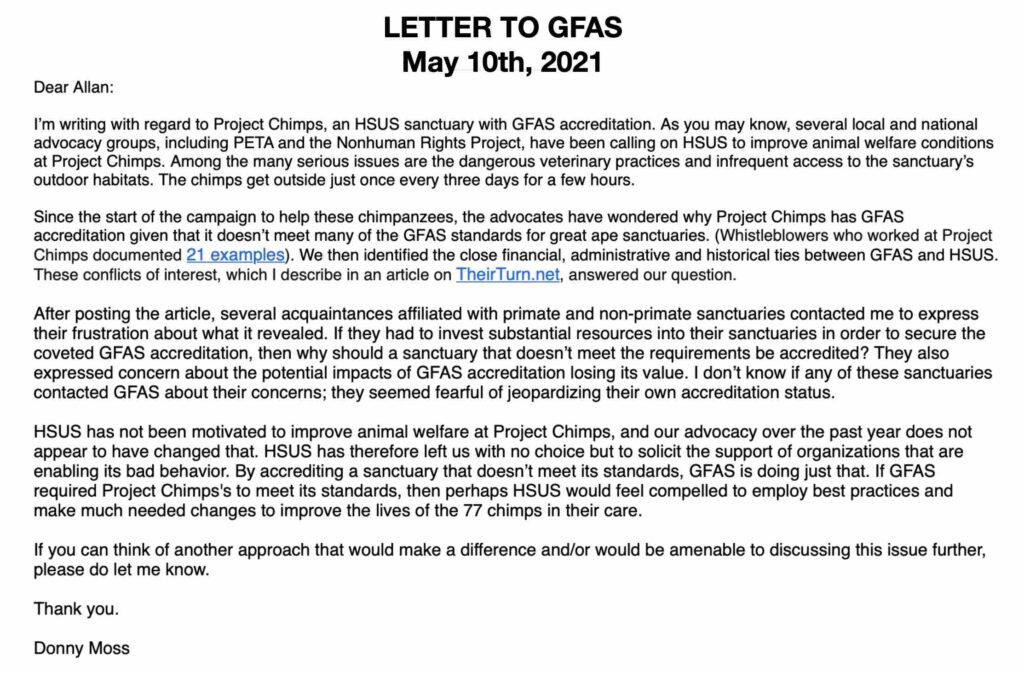
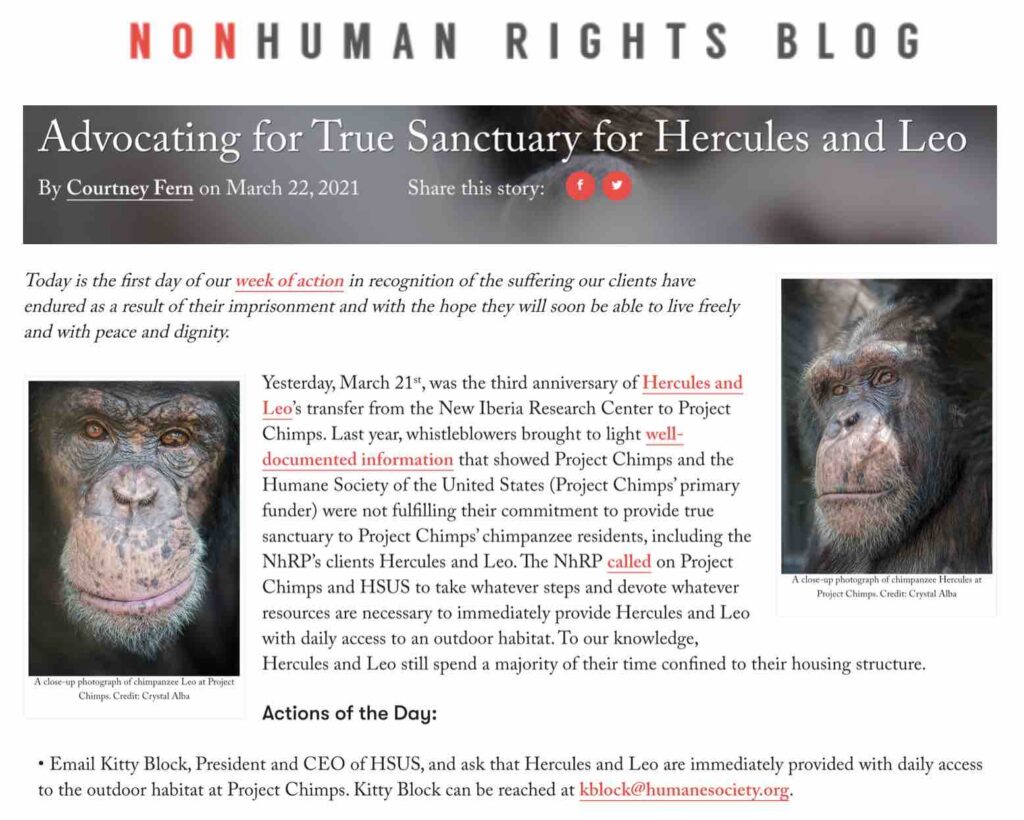
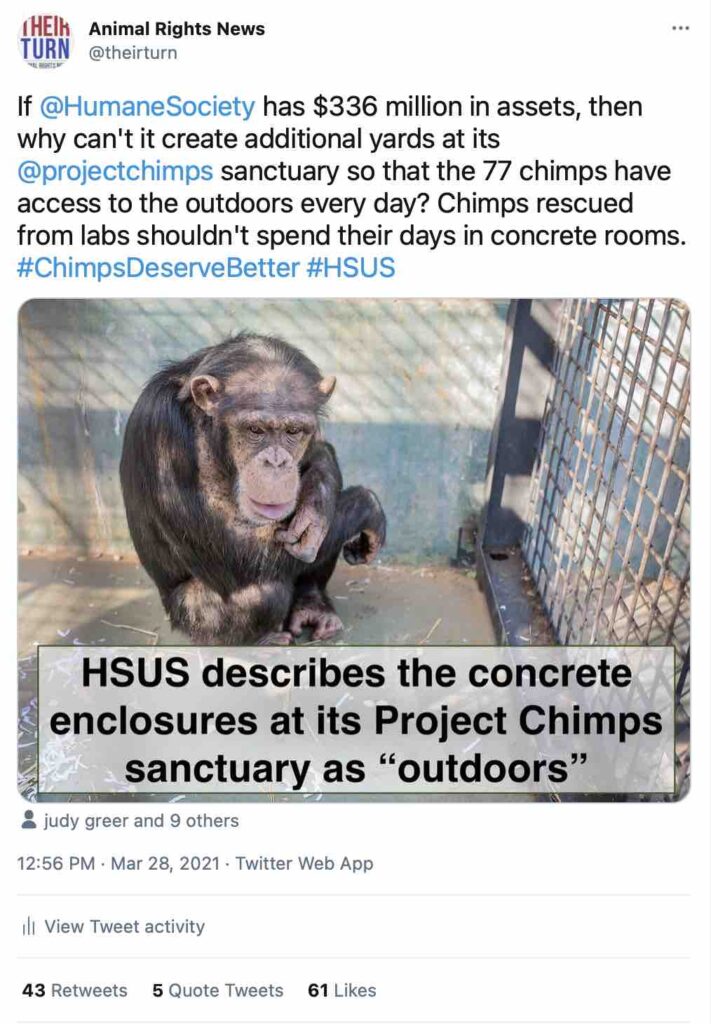
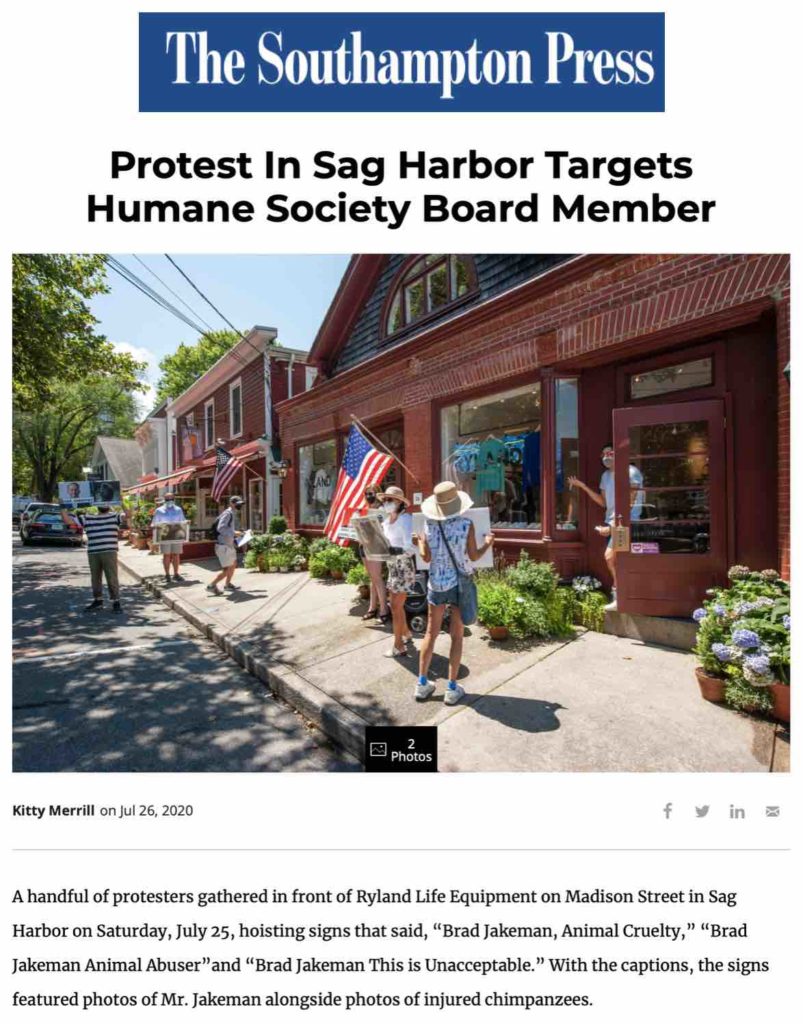
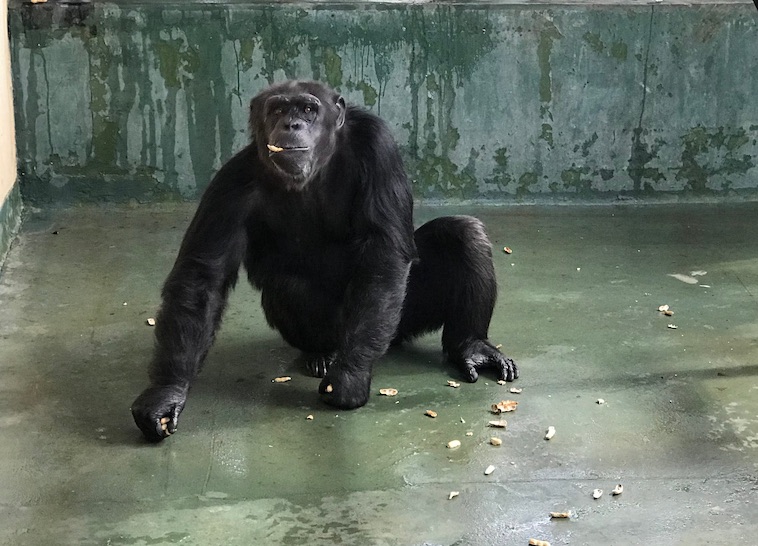
Follow Their Turn